NFMLA Monthly Film Festival June 2020: Asian Cinema Shorts Part 2
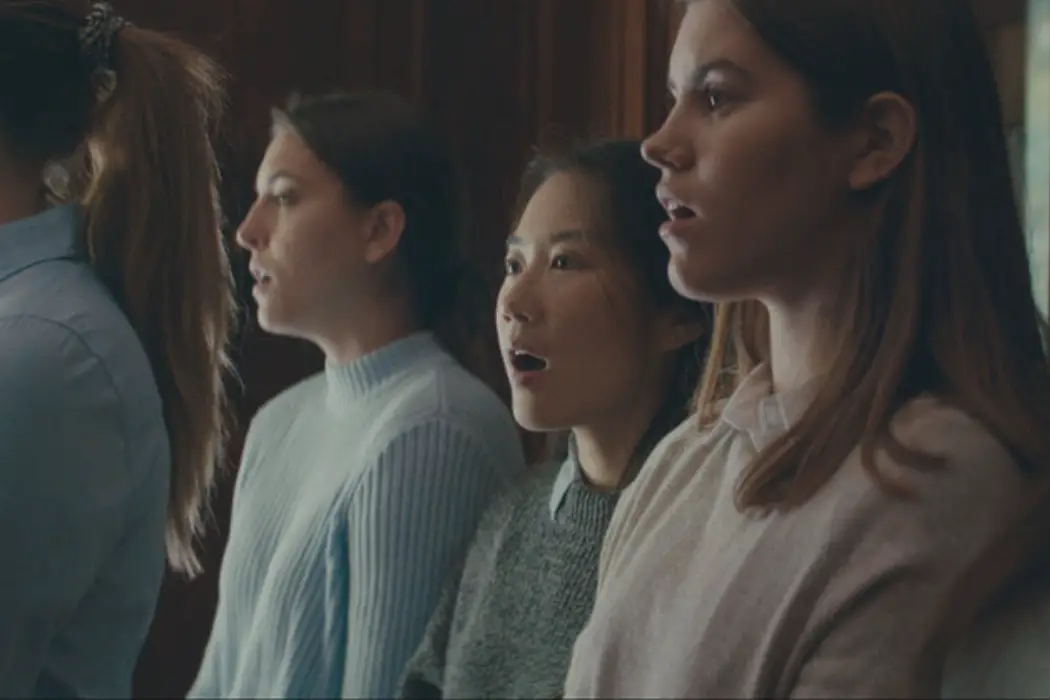
Film critic, Ithaca College graduate, University of St Andrews masters…
From June 5 to 7, NewFilmmakers Los Angeles is bringing its NFMLA Monthly Film Festival online. Its InFocus lineups are divided into Female Cinema and Asian Cinema. The Asian Cinema program has two themed blocks of shorts and one feature film, most of which are in English. The festival is enabled by Seed&Spark’s virtual film fest platform and supports emerging filmmakers and storytellers. With its Asian Cinema series, particularly in its Who I Am and What I Do block of shorts programming, we can see these voices tackling problems of coming of age, Asian-American identity, and diversity in the film industry.
Daytime Moon (Kyung Sok Kim)
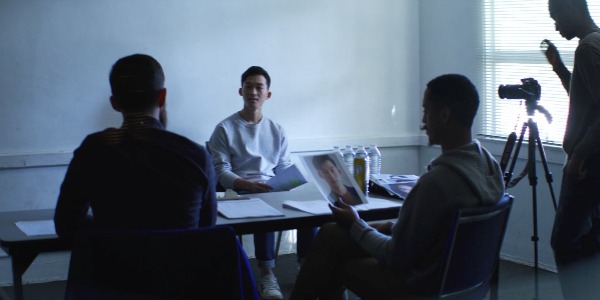
The Who I Am and What I Do block’s first offering, Daytime Moon, is a Los Angeles–set examination of Asian-Americans in Hollywood. Daehyung (Yun Jeong) is auditioning for a part, practicing the lines so he doesn’t have an accent. At the audition, he meets his buddy Takashi (Hiro Matsunaga) and former girlfriend Rebecca (Vivian Ahn).
Most of the film is a dance of perception, with Daehyung and Takashi trying to hide their accents while the Asian-American Rebecca is trying to invent one for her performance and doing an offensive job at it. Kyung Sok Kim, who directed Daytime Moon and wrote it with Rex Reyes II, has about 10 minutes of solid material from a 15-minute film. The short’s in-depth look at the casting process engagingly vivisects Asian-American identity and depiction and how the two form a feedback loop. “That’s not even the right Asian accent,” Daehyung tells Rebecca as she’s running her lines. “You’re just being stereotypical.”
Daytime Moon lays bare a system that tokenizes Asian and Asian-American representation and encourages the actors to play to broad stereotypes instead of the truth. But Daehyung’s speech to Rebecca at the film’s end feels too didactic, and I wonder if the film would have been better if Daehyung never confronted Rebecca at all.
As much as the performances enliven the script, they’re let down by the sound and picture: Actors’ voices constantly bounce off the walls, and many of the scenes are drowned in location sound and obscured by overly showy lighting. Some lens flare during the parking lot dialogue is fine — but one roaming, dreamy shot of Daehyung and Rebecca is all lens flare, making it hard to focus on the hammy dialogue they’re reciting from their audition sides.
We never see Daehyung perform in front of the director (RJ Glass) and producer (Jai Pellerin), but the aftermath to his audition stands out as the film’s best element — they tell him that they can still detect an accent and ask if he’s willing to read for the female lead instead. They explain that she’s allowed to have an accent. He protests that it’s a female part. “The script’s still being rewritten,” Daehyung is told. It’s a bitter yet warranted jab at Asian-American representation — that the powers that be can change the main character’s gender but not whether or not they have an accent.
Dream Boy or the Pursuit of Being (Auden Bui)
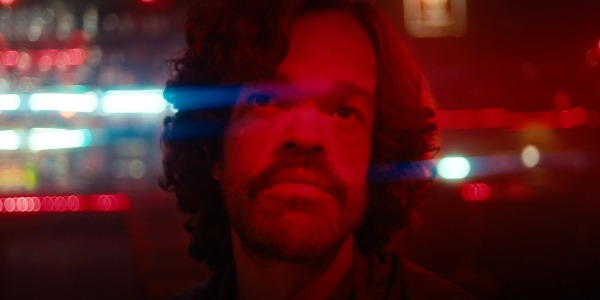
Jordan Prentice has held scenes with Armie Hammer, Christopher Walken, Colin Farrell, and Lily Collins, and Dream Boy or the Pursuit of Being is his film from start to finish. He’s in nearly every frame, from the opening monologue to the violent conclusion, and in his character, George Smoot, he gets a feast of roles. He’s a struggling actor, a disgruntled Lyft driver, and an impoverished dreamer living out of his car, but he’s also a romantic, a victim, and by the film’s conclusion, a Travis Bickle–esque avenger.
George has trouble landing roles in Los Angeles because he’s of short stature, a reality that contrasts Dream Boy’s empathetic cinematography. Auden Bui — who also wrote and directed the project — shoots George with mostly low-angle shots and heroic backlighting, suggesting the character’s moral superiority over every other person in the film, who mostly just walk all over him.
Prentice is the film’s beating soul, carrying the project beautifully for the first half before any real story takes over. Bui’s lensing and direction have the realistic edge of a documentary set against crisp starburst nighttime photography, whereby every streetlight, taillight, and background reflection is pulled thin and intensified like we’re seeing a miniature model of the universe.
Sometimes, the short can get a little too indulgent in its portrayal of grungy L.A. realism — the “struggling L.A. actor” subgenre comes with a BINGO card of clichés, from donut shops to topless bars, and Dream Boy nearly wins the board. And while there’s nothing artistically wrong with a story that just retreads worn ground, there’s a long sequence that takes up most of the film’s second half in which George is swindled by a drug dealer (Rob Moore), who offers him a thousand bucks for a back-alley blowjob. Every beat of the drawn-out, gratuitous scene — replete with emphatic slurping sounds dominating the mix — feels like something we’ve seen before, and Dream Boy’s treatment of the scene is exploitative and nasty.
For the short’s eleventh-hour turn into bloody Taxi Driver vigilante vengeance, the scene is essential and effective. But for the passionate, slow-burn character study that dominates the first half, the scene is excessive and out of place, even if it does give Prentice a multifaceted role worthy of his talents.
What We Talk About When We Talk About Lights, Camera, Action. (Jianle Leon Liu)
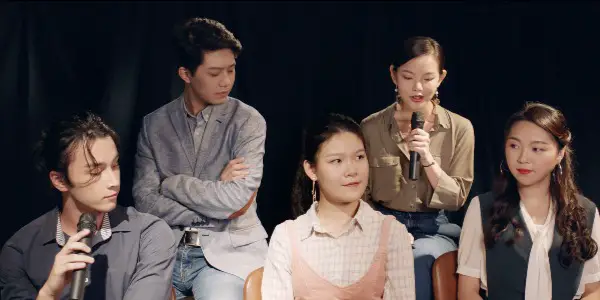
For the third film in the NFMLA’s unofficial micro series on Hollywood, we have What We Talk About When We Talk About Lights, Camera, Action. It’s a mostly Chinese-language tale about a visionary filmmaker, Fan Li Wen (Thomas Alexander). He recently graduated from an American film school and came to China to make his debut project, and the short chronicles the setbacks and drama that occur before it even gets off the ground. He loses his main actor, argues with his producer, and tries to pitch them a second, more intimate, idea for a feature that they can do on a smaller budget with fewer cast and crew. It’s the kind of short written by idealistic film students and fed-up grips on a shoot where craft services have only been giving them white bread, mayonnaise, and Fruit Gushers for three days.
What We Talk About has stilted dialogue and lots of hand-wavy references to “the studio” and “the industry,” but if you push past that, the production has a charming black box theater vibe. There aren’t many actors, much of the film takes place in one location, and Haibei Wang’s playful drumwork rolls nicely atop the dialogue. Director Jianle Leon Liu and cinematographer Yifan Wen keep the material fresh with imposing blue filters and, despite the stripped-down production, artistic lighting, and composition.
Ruochong Wang’s script offhandedly references 8 ½ and Day for Night — probably a bit too ambitious for What We Talk About’s less layered approach to the creative process — but the screenplay also zeroes in on the film’s metacritique of the Asian film industry. Besides an examination of a foreigner’s struggles to produce work, the short also draws on the typecasting of Asian actresses. You’re either a cute, quiet, innocent lead, or you’re pretty, in which case you’re “the dumb popular girl, the evil best friend, or the wife that dies in the first episode.”
The film also re-litigates a key dialogue that’s been kicked around film production for years: “How can we sell non-romantic movies to the female demographic?” the producer (Xiaoshiyan Liang) asks one of the actresses (Chengjin Zhung).
“How can we sell non-romantic movies to the male demographic?” she claps back. Chengjin perfectly channels the frustration and wide-eyed anger of a typecast performer, which makes her riposte all the more searing.
Fleck (Jing Ai Ng)

Fleck is a far bigger production than any other short at the festival, the multitudinous crew led by writer-director Jing Ai Ng. It’s also a production of the AFI Conservatory, so it’s subject to the first law in the student film grimoire that if a short can have a party scene, it must. In Fleck, however, the party scene is the crux of the narrative, and if you remove it, the short collapses in on itself.
Our protagonist is Jamie (Stacy Chu), a teenager at an uptight prep school who, with her best friend, Maddie (Alyssa Latson), conspires to sneak out to a yearbook party to meet up with her crush, the dreamboat Hudson (Kai Caster). Jamie’s crush on Hudson is thoroughly established between the requisite passing notes in class and some nervous chatter at swim practice, but given that things don’t really work out with the two of them, the more rewarding relationship in Fleck is that of Jamie and Maddie.
Chu and Latson excel at selling their characters’ longtime friendship with changes in tone and subtle mannerisms, like the long “are we gonna do this?” looks they exchange when Hudson invites them to the party. Details in the costuming (from Page Peterson) and makeup (Silvia Bottini, Moung Hui Park, and Akihiro Sawada) help bridge the gap between Jamie and Maddie’s buttoned-up prep school couture and their more outgoing personalities at the yearbook party.
But that pivotal party setpiece pulls quadruple duty for the story — not only does it serve Jamie’s quest for acceptance in the elite school, but it also challenges her friendship with Maddie, her crush on Hudson, and her antipathy toward Sami Sandzimier’s Brianna, a member of their clique with a somewhat promiscuous reputation. The story unfolds in a flurry of experiential cuts, courtesy of Briana Chmielewski’s gorgeously expressionistic editing. We focus on the macro relationships as well as the micro — the way we cut from Jamie’s searching eyes to a pan of the room, endearing us to her infatuation with Hudson as we look for him, too.
The party’s also the subject of a thematic point about the prevalence of sexual assault on college campuses, but the movie doesn’t really go anywhere with it. Nor does it explore the Asian-American Jamie’s conflict with pursuing the white Hudson, other than a quick line early on about how her parents wouldn’t approve. Instead, Fleck is more interested in sympathizing with our social outcasts and celebrating the bonds between women.
Beam (Jesse Gi)
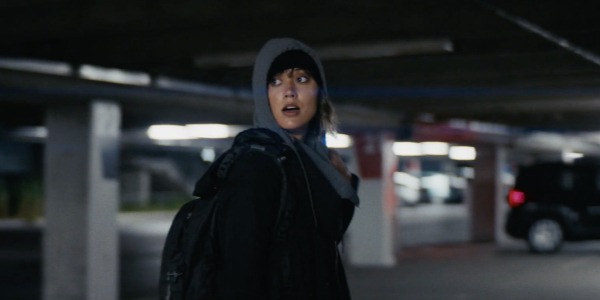
Few things can match the lightning-in-a-bottle wonderment of a great sci-fi short film, and writer-director Jesse Gi’s Beam has everything you can ask for. A foot-on-the-gas opening chase scene. Beating up cops. One last heist. That sonic bubble “blooooo” sound that’s in every sci-fi movie. And most importantly, a gimmicky science gizmo — the hero (Dia Frampton) has a backpack that can teleport her short distances.
In less than 15 minutes (this block’s shorts are shorter than the first’s), Gi weaves an exciting, twisty narrative. The story is braided around Frampton’s scrappy heroine, Jane, and her relationship with her sister, Katie (Katie Cordell). An affecting scene toward the end, too, delves deeper into their backstory: They’ve got a deathly ill mother (Heidi Shon) in the hospital, and the heists, surprise surprise, will pay for the medical bills and make ends meet. Supposedly, Jane is running drugs, though that’s as much info as Beam is willing to give us.
It’s one of those rare sci-fi/thriller shorts that can focus on the grandeur of the genre — hotwiring cars to escape the police, teleportation-aided heists, etc. — and the unhappy realities, like how Katie’s torn between attending college and paying for their mom’s treatment. “I saw a couple job postings at the mall. I was thinking about getting a job,” she tells her older sister.
The bifurcated narrative lets Frampton give an intense, on-edge performance during her chase and fight scenes, but then she turns around and gets to play the just-barely-making-it-work older sister in the interim. The short seamlessly switches gears between the stories.
Beam features terrific composition throughout, too — cinematographer Joseph Yao is working with the brutalist greys of a parking garage for half the picture, but the space looks vibrant, alive, the shadows creeping in on Jane. Yao, who also did coloring work on the film, and Gi, who also edited, lend Beam a stark high-contrast color grade that helps the special effects shine.
And yes, the rules of the teleportation doohickey don’t make much sense and are never explained, but such is the bargain one makes with a sci-fi short. It’s satisfying enough to watch Jane’s last job going awry, imploding in front of her as she tries to get out in one piece.
Learn more about the NFMLA Monthly Film Festival here.
Does content like this matter to you?
Become a Member and support film journalism. Unlock access to all of Film Inquiry`s great articles. Join a community of like-minded readers who are passionate about cinema - get access to our private members Network, give back to independent filmmakers, and more.
Film critic, Ithaca College graduate, University of St Andrews masters student, head of the "Paddington 2" fan club.













